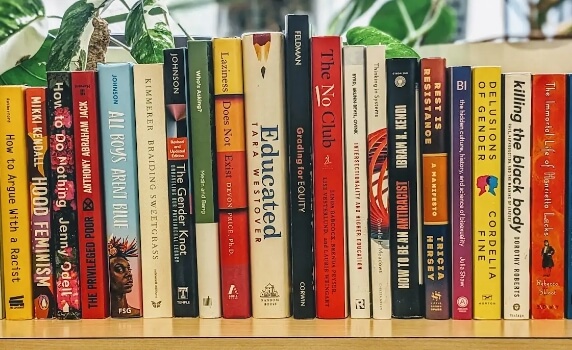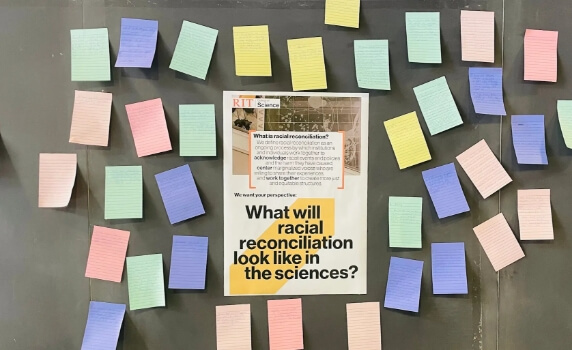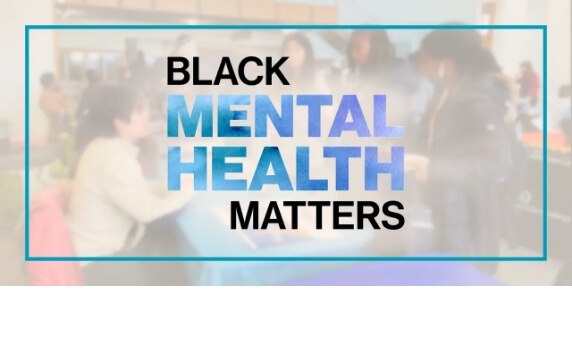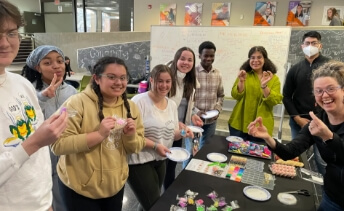Access and Belonging Initiatives

Access and Belonging Initiatives
College of Science
- RIT/
- College of Science/
- About/
- Access and Belonging Initiatives
A welcoming and supportive environment is key to student success. The College of Science is committed to building a community grounded in access, open dialogue, collaboration, and authentic allyship.
The principles of access and belonging are fundamental pillars of the College of Science. In June 2017, a team of College of Science faculty and staff launched a five-year plan guided by these pillars to foster a more supportive environment across the college. The resulting program’s success led to a broader institutionalized initiative in the College of Science.
Today, the College of Science Access and Belonging Initiatives aim to provide education and resources to our community. We commit to supporting our colleagues and scholars by driving change to make our college more welcoming and collaborative.
Key Facts
150+
Faculty and staff participants in our Excellence in Science Teaching and Mentoring Series that educates and prepares our faculty to better support students in the classroom and within our community.
$100K
Award granted in 2024 from the National Institutes of Health for creating a culture of access and belonging in biomedical and behavioral research.
3
Student group collaborators (COS ALANA, COS LGBTQ+ Inclusivity in Science Club, and First Gen Circle).
Message from Leadership

We commit to expanding and enhancing access and engagement to ensure success of the faculty, staff and scholars of the College of Science, not because it is easy, but because it is complex, necessary and essential to advance the mission of the College of Science.
André Hudson
Dean, College of Science

We understand commitment is more than words. It is action and a promise to continue despite challenges.
Lea Michel
Director of Access and Belonging Initiatives, College of Science
Community Building Initiatives
Summer Book Club
Every summer, we bring together students, staff, and faculty to read and discuss a book focused on the topics of personal experience, science, and higher education.
2025 Summer Book:
- I Never Thought of it That Way by Mónica Guzmán
To recommend books or topics for future book clubs, fill out our Book Club suggestion form.
TogetherRIT
The RIT Division of Access, Engagement, and Success hosts a day of dialogue called Together RIT each Fall. The College of Science Access and Belonging team participates by hosting a resource table, arranging exhibits or speaker events, and offering companion programming in the science buildings.
Black Mental Health Matters
Counseling and Psychological Services hosts an annual event called Black Mental Health Matters with resource sharing, small speaker sessions and workshops, and community-building activities. Our team partners with the College of Science ALANA (COS ALANA) student club to offer resources and support networking among ALANA students.
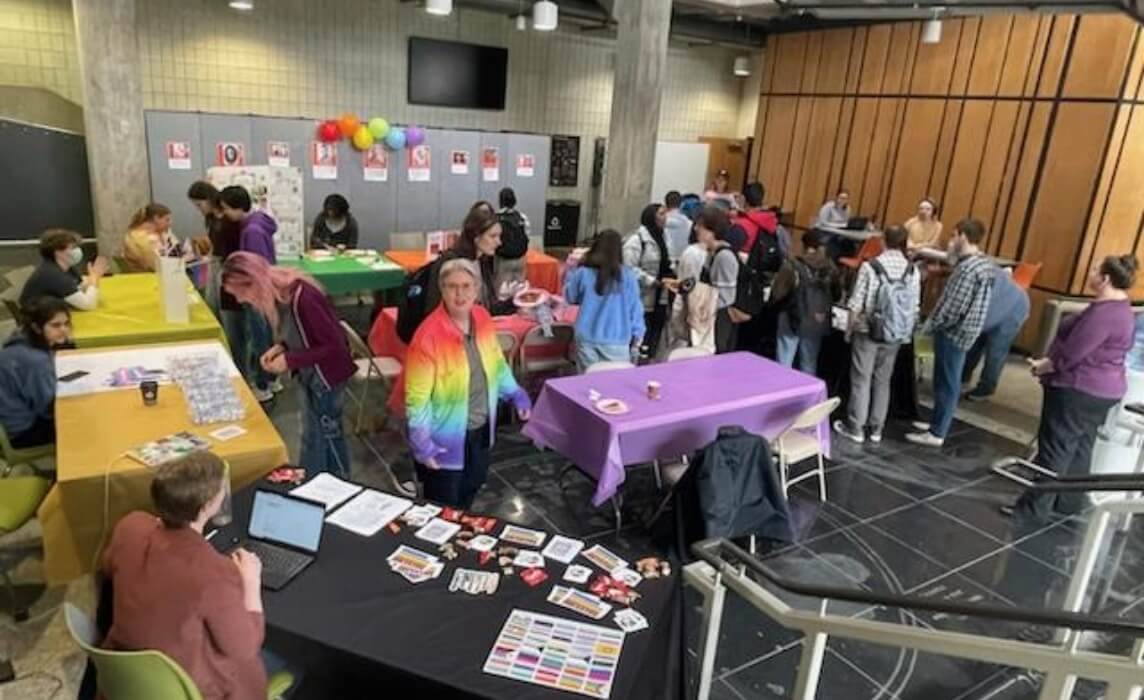
LGBT STEM Day
In 2022, The College of Science LGBTQ+ Inclusivity in STEM Club (COSLISC) hosted its first annual LGBT STEM Day, a day-long celebration of queer identities and excellence in STEM. This event is open to the whole RIT community and includes speaker panels, invited speakers, mixers, and information sharing around LGBTQ+ identities and needs. Check out the signed LGBT STEM Day poster in Gosnell Hall!
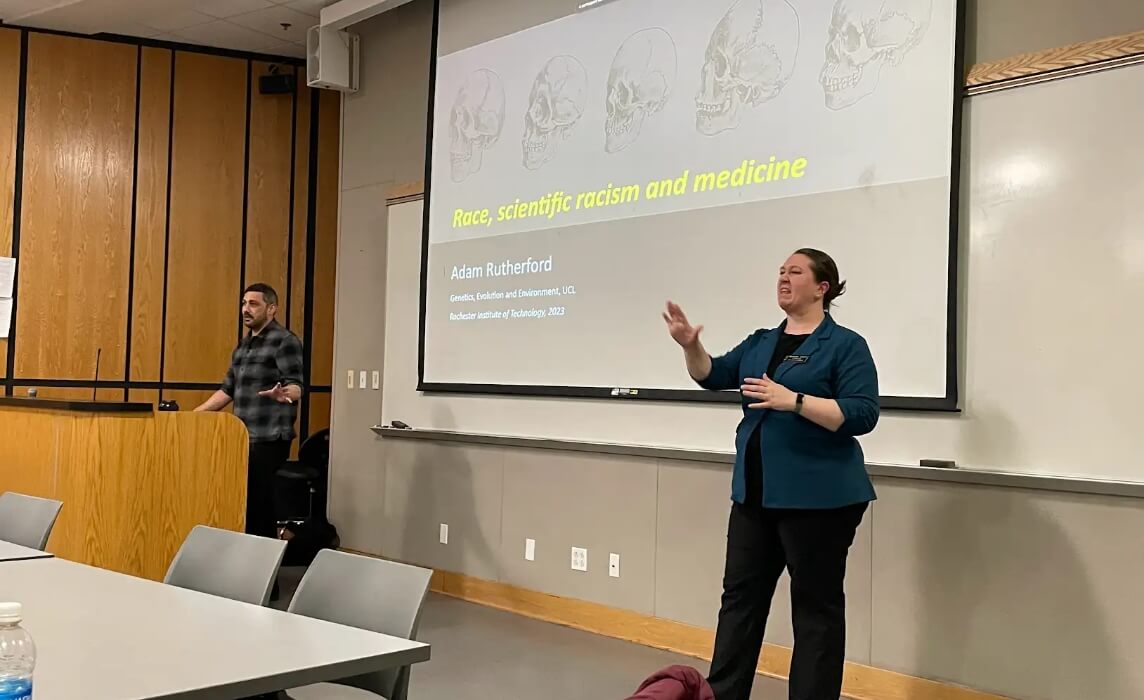
Invited Speakers
We host invited speakers each year to talk about the intersections between social justice and science. Our goal is to bring our community together in a casual environment to think more deeply about the culture of science, the way science has been misused to support bigotry, and how we can make science a space that’s open to everyone.
For Our Students
AfterRIT
In 2023, the College of Science hosted its inaugural AfterRIT event for graduating seniors. This day-long annual retreat includes workshops led by RIT alumni and community leaders on topics related to personal and professional development, such as:
- Advocating for What You Need to Thrive
- Informal Networking and the Rules of Golf
- Whether (and How) to Come Out at Work
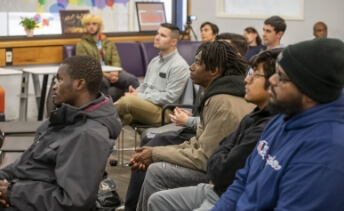
Workshops
We offer several workshops each year on topics that are of particular interest to our students, such as Healthcare Disparities and How to Say No. These workshops are developed in response to student opinions and are open to both undergraduate and graduate students.
College of Science Student Clubs
We are committed to working with student affinity groups to provide and support community-building programs such as celebrations, vigils, talks, and panels. We are currently working with the College of Science LGBTQ+ Inclusivity in Science Club (COSLISC), College of Science ALANA students, and First Gen Circle to support their community-facing programming. If you are a College of Science student interested in creating additional affinity groups and would like our support, please contact Dr. Jacquie Ludwig.
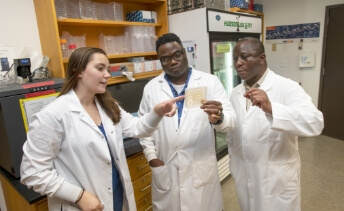
Research Support
Emerson Summer Undergraduate Research Fellowships
The Emerson Summer Undergraduate Research Fellowships fund students to complete 10 week, full-time summer research experiences with faculty in the College of Science. Any student enrolled in a BS or BS/MS program within the College of Science the following Fall is eligible to apply.
Research Experiences for Undergraduates (REU)
REU is an NSF-funded program to support active research participation by undergraduate students. Generally, REUs include funding to complete a 10-week summer research project, on-campus housing, and professional development programming.
Find and apply to our current REU's on the NSF ETAP website.
Black Awareness Coordinating Committee Summer Research Fund
The BACC Summer Research Fund was established in 2017 by Dr. Rick Kittles, a 1989 biology alumnus, and provides funding to RIT students enrolled in a program within the College of Science. Funding will be used for applicants to conduct summer research with a College of Science professor and to support the costs associated with presenting research at conferences.
McNair and CSTEP
The McNair Scholars and Collegiate Science and Technology Entry Program (CSTEP) programs are university-level initiatives aimed at supporting marginalized students. McNair Scholars is focused particularly on students who are interested in pursuing a doctorate after college, and CSTEP focused on supporting STEM majors.
Women in Science (WISe) Travel Awards
WISe grants student travel awards ($500 each) to four students each year. WISe is composed of College of Science of faculty, staff, and Ph.D. students. Its members organize and participate in events such as workshops to support undergraduates applying to graduate school or summer research opportunities, external speakers, and community outreach events through partnerships with local museums and the Boys and Girls Club of Rochester. Learn more and apply for support on the WISe webpage.
For our Faculty and Staff
Excellence in Science Teaching and Mentoring
Our cohorts are learning communities focused on welcoming and supportive practices for teaching and mentoring. These cohorts are open to faculty and staff, including postdoctoral scholars. Cohort members meet approximately 15 times over the academic year to learn together and co-develop best practices for their specific work contexts.
During 2021 interviews with former participants, 93% of interviewees stated that the workshops increased their awareness on various aspects of identity, making them feel more confident in their ability to create safe and welcoming environments.
Employee Workshops
We host workshops throughout the year on popular topics such as Power Dynamics in Mentoring and Writing Broader Impacts.
We also host mini learning communities of 3-5 sessions to facilitate deeper learning on specific topics, such as racism and heteronormativity. To suggest a workshop topic, please contact Dr. Jacquie Ludwig.
Hiring Training
We run regular elective trainings for faculty search committees to cover strategies for writing job ads that reach diverse audiences, equitable application review, and conducting interviews that are fruitful and respectful.
Additionally, we offer unit-wide training for all College of Science schools conducting a faculty search to support the development of welcoming academic culture.
Resources
Teaching resources
Mentoring resources
General allyship resources
- Allyship graphic
- Our LGBTQ+ Allyship Handout (pdf)
- Neopronoun Guide (pdf)
- Dr. Alan Smerbeck's Gender Diversity Guide (pdf)
- Spectrum Support Services Neuroinclusive Environment Tips (pdf)
- Microaggressions and Microaffirmations (pdf)
- Further Reading: our Zotero Library
If you’re looking for a specific item used in our Cohorts, research that informs our work, or resources to help with increasing representation, check out our library! This is a collection of primary research articles, books, podcasts, videos, and op-eds that we use and incorporate across all of our programming.
Related News
-
February 18, 2026
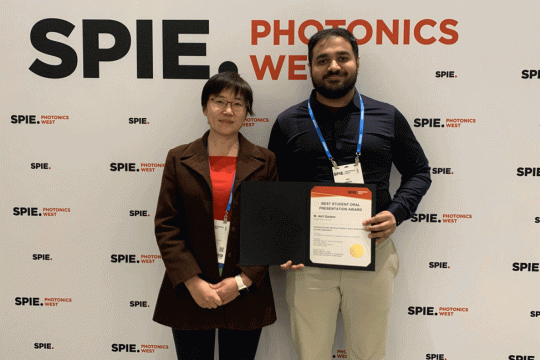
Ph.D. student recognized for work in optics
Imaging science Ph.D. student Muhammad Akif Qadeer has been awarded the 2025 Harvey M. Pollicove Memorial Scholarship from the Optica Foundation. The award is given to one student each year who shows potential in precision optics manufacturing and lens design.
-
May 9, 2025

Astro Teller encourages Class of 2025 to unlock their creativity and be grateful
Emphasizing the power of a creative mindset over mastering the pursuit of excellence, Astro Teller urged the Class of 2025 to embrace the journey ahead with curiosity, humility, and a willingness to be intentionally foolish.
-
May 1, 2025

Crucial training pipeline for Deaf scientists dismantled by NIH funding cuts
Science speaks to Michelle Koplitz '08 (biotechnology), Sara Blick-Nitko '17 (professional studies), and Wyatte Hall '08 (psychology) about the impact of budget cuts on the Deaf Scientists Pipeline.
-
April 28, 2025

Research opportunities at RIT position grad to pursue Ph.D.
Hannah DeFelice’s research at RIT focused on how to improve animal welfare. The same research now takes her to Cornell University this fall to pursue her doctoral degree in biogeochemistry, the study of how living things interact with the physical and chemical environment.
Get Involved
We value your feedback!
Do you have ideas or comments about our Access and Belonging initiatives in the College of Science?
Send us an email:
Dr. Jacqueline Ludwig
Assistant Director of Access and Belonging Initiatives
Dr. Lea Michel
Director of Access and Belonging Initiatives





